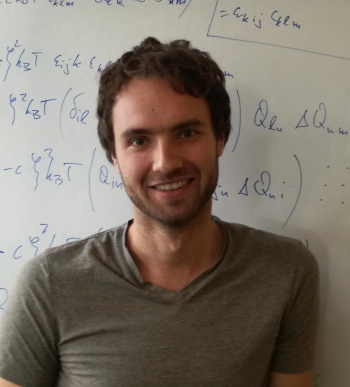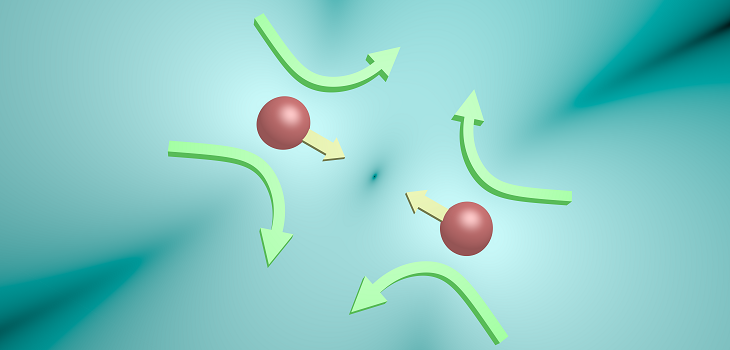Magnetically induced particle dynamics and particulate structure formation in viscous and viscoelastic media – theoretical-numerical investigations



Postdoc
Muhammed Muhsin Abdul Azeez, M.Sc.
Room: G20-203


Student Research Assistant
Markus Heiber

Subproject description
Magnetic gels and elastomers, consisting of magnetic particles within an elastic polymer medium, exhibit remarkable properties such as tunable stiffness and actuation deformations induced by magnetic fields. These properties are highly dependent on the particle arrangement, which is held in place by the elastic medium. Anisotropic structures, such as chain-like aggregates, can form under the influence of strong magnetic fields.
The project investigates the dynamics of particle structure formation during the fabrication of these materials. The interaction of anisotropic magnetic and hydrodynamic forces plays a crucial role in this process. Individual particles set the medium in motion through their movement, thereby influencing the arrangement of other particles. A particular focus is on the role of the viscoelastic properties of the medium during the transition from a viscoelastic-fluid to a solid state. Key parameters include particle concentration, magnetic field strength, and particle properties.

To implement this, a numerical method is developed that couples particle movement with environmental influences. Close collaboration with other subprojects within the research group allows for the integration of experiments, material analyses, and simulation methods to develop advantageous particle structures. This contributes to optimized material properties and enhances public outreach.
The subproject also holds general relevance for the collective dynamics of particles in viscoelastic media. One example is the movement of active microswimmers, whose dynamics are altered by interactions through a surrounding medium.
The writing of this text was assisted by AI - view original
